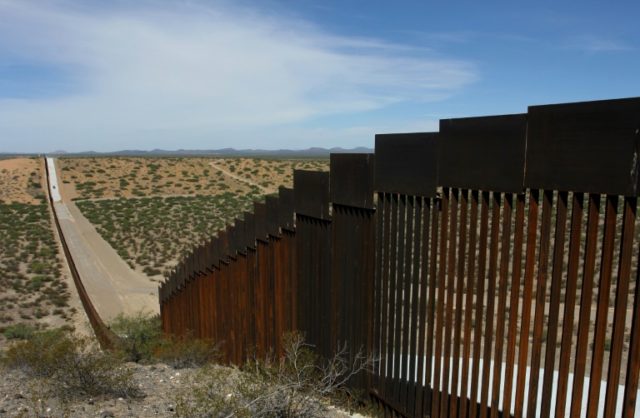Mexico City (AFP) – Mexico said Friday it has slashed undocumented migration to the United States by 56 percent since May, aiming to dodge the threat of tariffs under a deal the two countries are set to review next week.
America’s southern neighbor agreed in June to crack down on migration, mainly from poor countries in Central America, under the threat of import tariffs from President Donald Trump, who is seeking re-election on a largely anti-immigration platform.
“I do not think there will be a threat of tariffs because there is a 56 percent reduction,” said Foreign Minister Marcelo Ebrard, who is due to travel to Washington next week to review that agreement with the Trump administration 90 days in.
Ebrard repeated Mexico’s refusal to become a so-called safe third country, which Trump has pressed for. Under such an arrangement it would agree to make migrants who cross its territory seek asylum in Mexico rather than the United States.
“The Mexican strategy is working. We will not agree to be a safe third country … because it goes against our interests,” the minister said. “It is unfair to our country.”
Ebrard said he will tell Vice President Mike Pence and Secretary of State Mike Pompeo when he meets with them Tuesday that the way to fight undocumented migration from Central America is to reduce the poverty and violence that are prompting people to leave in the first place.
He said that would include pushing Washington to fulfill its economic aid commitments to the region.
“The United States promised $2 billion, but we’re still waiting for… a little more than $1 billion” of that, he told a news conference.
– Hardline turn –
Trump threatened in May to impose tariffs on all Mexican goods, gradually rising as high as 25 percent, if the country did not do more to stop the flow of migrants, after the number of undocumented families crossing the border hit record levels.
The tariffs would have been devastating: Mexico sends some 80 percent of its exports to its giant northern neighbor.
Fearing an economic crisis, President Andres Manuel Lopez Obrador dispatched Ebrard to Washington for marathon talks, which ended with an 11th-hour deal on June 7.
In it, Mexico promised to deploy thousands of National Guardsmen to secure its borders and expand its policy of taking back asylum-seekers as their cases are processed in the United States, a plan known as “Remain in Mexico.”
Lopez Obrador, a leftist, took office last year promising a softer stance on migration than his predecessors.
But Trump’s hardball politics and the surge of Central American migrants — many of whom crossed Mexico in large caravans last year — forced him to adopt a more hardline stance.
He seems to have exceeded even Trump’s expectations, despite criticism from human-rights activists and some in his own party.
Mexico’s National Guard deployment now goes well beyond the 6,000 troops it promised under the deal: Ebrard said the total number of Guardsmen sent to the northern and southern borders has reached 25,451.
US numbers also indicate the Mexican strategy is working: border detentions plunged from a 13-year peak of 144,266 migrants in May to 82,049 in July, a 43 percent drop, according to the Department of Homeland Security.
Trump has recently played nice, saying this week that Mexico is doing a “fantastic job.”
But it remains to be seen what kind of reception Ebrard will get in Washington next week — and how Trump may target Mexico, a favorite campaign-trail punching bag, as the race intensifies for the November 2020 US presidential election.

COMMENTS
Please let us know if you're having issues with commenting.